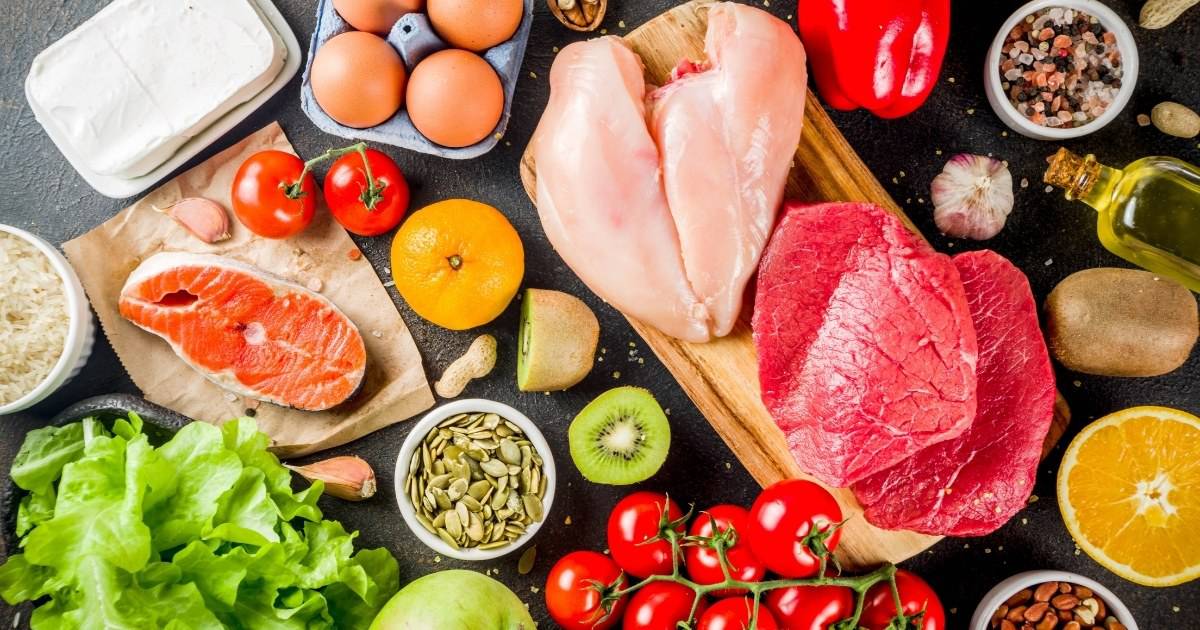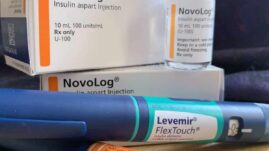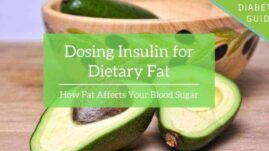If you lived with diabetes for a while, you’ve probably noticed that sometimes you may struggle with insulin resistance.
People with all types of diabetes can suffer from insulin resistance, and the longer you’ve had diabetes, the more likely you are to experience this.
There are many ways to manage insulin resistance, but one of the best and easiest modifications to make is what you eat every day.
This article will explore the insulin resistance diet for diabetes, what foods to eat, and what foods to avoid, and how you can better manage insulin resistance in your life.

Table of Contents
- What is insulin resistance?
- What causes insulin resistance?
- Why is insulin resistance bad?
- Eating to combat insulin resistance
- The following foods should be eaten in abundance
- The following foods should be eaten in moderation
- The following foods should be limited to avoid insulin resistance
- Conclusions
What is insulin resistance?
Insulin resistance, also known as impaired insulin sensitivity, occurs when your body starts to resist the hormone insulin, resulting in higher blood sugar levels, increased insulin needs, and weight gain.
This built-up tolerance to insulin can happen in people with type 1 diabetes, type 2 diabetes, prediabetes, or even gestational diabetes. It also occurs in the general population as well, but when one isn’t taking exogenous insulin, the effects are not as obvious.
Insulin resistance is one of the key reasons why some people with type 2 diabetes eventually need to start taking insulin, and why people with type 1 diabetes sometimes need more insulin over time.
What causes insulin resistance?
The exact reason for insulin resistance is still a mystery, but several risk factors will increase a person’s likelihood of becoming more insulin resistant, including:
- Genetic components (several scientists have isolated genes that are believed to make one more susceptible to insulin resistance)
- Older age (over 45)
- A parent or sibling with diabetes
- A history of gestational diabetes, heart disease, or stroke
- Polycystic Ovary Syndrome (PCOS)
- Sedentary lifestyle
- Being overweight or obese
Why these risk factors? Scientists believe that extra fat cells in the body can exacerbate inflammation, and that physiological stress contributes to higher insulin tolerance.
Why is insulin resistance bad?
Taking more insulin isn’t necessarily bad; what is detrimental to your health is when you have to take increasing amounts of insulin for the same number of carbohydrates eaten.
Insulin resistance means that a person needs to take more insulin to manage their blood sugars, and if not, they will struggle with persistent hyperglycemia that can lead to diabetes complications, such as heart disease, stroke, blindness, amputation, and even premature death.
In the shorter term, insulin resistance can lead to unwanted weight gain and can contribute to obesity, as well as the development of type 2 diabetes in people with prediabetes and at risk for diabetes.
Over time, insulin resistance can lead to a condition called metabolic syndrome, also known as insulin resistance syndrome. This chronic condition involves a combination of adverse effects such as:
- High cholesterol
- High blood pressure
- High blood sugar
- Excess fat around the waist
Eating to combat insulin resistance
When eating to combat insulin resistance and improve insulin sensitivity, the focus should be on plenty of unprocessed, whole foods.
Highly processed foods with simple sugars, such as white bread, cakes, cookies, and ice cream spike blood sugars quickly, and over time, lead to insulin resistance.
Additionally, foods high in saturated fats have been shown to worsen insulin resistance, like sausage, bacon, cheese, and butter.
The following foods should be eaten in abundance
An insulin resistance diet should not be overly restrictive. As long as you focus on unprocessed foods, you can include almost all food groups in your meal plan.
Non-Starchy Vegetables
You can’t go wrong with vegetables, especially green, leafy, low-carb vegetables. Vegetables are full of healthy fiber, vitamins, and minerals, and are usually low in sugar and carbohydrates.
Aim for 2-3 cups of vegetables per day (or even more!) to get all of the benefits and increase insulin sensitivity. The best vegetables to eat include:
- Kale
- Spinach
- Swiss chard
- Lettuces
- Radish
- Broccoli
- Cauliflower
- Asparagus
- Green Beans
- Bell peppers
- Brussels Sprouts
- Cabbage
- Onions
Fruits
Sometimes fruits get a bad reputation because they are naturally higher in sugars and carbohydrates.
However, in their natural, whole form, they cause much lower blood sugar spikes than processed candy or treats, plus they have the added benefit of plenty of fiber, essential vitamins, and bountiful minerals and antioxidants to supercharge your diet.
Don’t be afraid to eat fruit! Aim for 1.5-2 cups of fruit per day. Some of the best fruits to eat for insulin resistance are:
- Blueberries
- Strawberries
- Blackberries
- Raspberries
- Green bananas
- Coconut
- Avocados
- Tomatoes
- Cantelope
- Honeydew
- Figs
- Plums
- Peaches
Related: The 10 fruits with the least sugar
Beans & Legumes
Beans and legumes are so healthy for you, especially if you eat a vegetarian or vegan diet.
These superfoods are full of protein, fiber, vitamins, and antioxidants. They keep you fuller for longer, and battle insulin resistance at its core. Aim for 2.5 cups per day.
The best beans and legumes to eat are:
- Lentils
- Black beans
- Kidney beans
- Chickpeas
- Pinto beans
- Lima beans
Lean protein
Protein is excellent for blood sugar management, but the saturated fats in many meats and cheeses contribute to insulin resistance.
According to the National Institute of Health’s Dietary Reference Intake Report, you should aim for 0.36 grams of protein per pound of body weight per day.
That means that the average sedentary man should eat about 56 grams of protein per day, and the average woman should eat about 46 grams. You may require more if you’re physically active.
These are the best lean proteins to focus on to improve insulin sensitivity:
- Salmon
- Mackerel
- Tuna
- Monkfish
- Trout
- Sardines
- Halibut
- Flounder
- Lobster
- Scallops
- Shrimp
- Skinless chicken breast
- White turkey meat
- Cornish hen
- Lean cuts of pork tenderloin
- Veal loin chops
- Lamb chops (lean)
- Egg whites (limit yolks that have a lot of saturated fats)
- Tofu
- Tempeh
- Seitan
- Textured vegetable protein (TVP)
- Nutritional yeast (also an excellent source of B Vitamins!)
The following foods should be eaten in moderation
Healthy fats
Healthy fats will not worsen insulin resistance. Healthy fats provide essential fatty acids, can slow down digestion, and increase the uptake of vitamins and minerals in the food you eat.
The best healthy fats to eat are:
- Extra virgin olive oil (unrefined and cold-pressed)
- Nuts like almonds, cashews, walnuts, Brazil nuts, and hazelnuts
- Seeds like flax seeds, sunflower seeds, and pumpkin seeds (pepitas)
- Nut butters like almond butter and peanut butter
Whole grains
Whole, unprocessed carbohydrates are a key source of fuel, whether or not you live with diabetes.
Eating these in moderation will not worsen insulin resistance, and if you focus on minimally processed whole grains, can help improve insulin sensitivity as well.
Just be sure to carbohydrate count appropriately.
- Stone-ground whole-grain bread
- Whole wheat bread
- Bulgar wheat
- Brown rice
- Cornmeal
- Rye
- Millet
- Quinoa
- Farro
- Buckwheat
- Steel Cut oats
Low-fat dairy
Dairy products are healthy and filling foods to eat, as long as they’re not full of saturated fats. Load up on these dairy products to protect your insulin sensitivity:
- Low-fat mozzarella
- Low-fat goat cheese
- Low-fat or nonfat Greek yogurt (unflavored)
- Low-fat cottage cheese
- Low-fat or nonfat milk (or almond, soy, or coconut milk)
It’s also important to mention that you should be drinking at least 8 glasses of water per day (8 ounces per glass) and enjoy beverages with no sugar added: such as coffee and tea (if you do not struggle with caffeine).
The following foods should be limited to avoid insulin resistance
If you’re filling your plate with plenty of whole, unprocessed foods, you shouldn’t feel as though you’re missing out on much! Try and avoid these foods that worsen insulin resistance:
- Prepackaged and processed foods
- “White” carbohydrates, like chips, pretzels, cookies, and cakes
- Foods that have added sugars, like ice cream, brownies, and chocolates
- Foods high in saturated fats, like bacon, sausage, full-fat cheese, and milk
- Soda and fruit juices
- Pasta
Conclusions
There is no magical “cure” for insulin resistance and many people with diabetes tend to experience the phenomenon over time.
However, there are strategies you can employ to help alleviate the condition, including increasing exercise, losing weight, adjusting your medications (although always check with your doctor first), increasing your sleep, improving your stress management, and most of all, changing your diet.
Having a diet focused on whole, unprocessed foods that are full of fiber is the ideal way to combat insulin resistance and improve insulin sensitivity.
Be sure to include plenty of fruits, vegetables, and lean protein in your diet, along with plenty of water, while avoiding foods high in saturated fats, foods that have added sugars, as well as highly processed foods.



